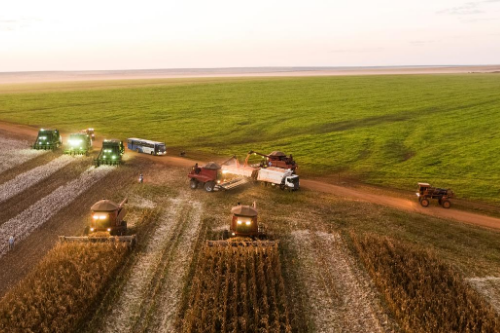The cotton industry has a demonstrated history of holding itself accountable when it comes to environmental effects like climate change and pollution. Cotton is an inherently sustainable fiber; however, mitigating the effects of cotton farming on our natural environment has a lot to do with which farming practices are in place.
A growing number of consumers care deeply about the effects that a company or industry can have on our planet. These environmentally conscious shoppers have created a high demand for eco-friendly products and practices, including the use of sustainable cotton as a key ingredient.
In keeping with this growing demand, the Soil Health Institute (SHI), a nonprofit whose mission is to protect and enhance soil health, has announced the launch of “Healthy Soils for Sustainable Cotton,” a project that helps U.S. cotton farmers increase soil health on their farms.
A Powerful Partnership
Healthy Soils for Sustainable Cotton partners with farmer mentors and soil health technical specialists to guide farmers toward healthier soil practices and offer technical assistance. The project seeks to increase adoption of soil health management systems by providing farmers with education and training from expert scientists. Technical specialists and farmer mentors will teach farmers about improving soil health, expanding sustainable cotton production, and maximizing productivity. Cotton farmers who take part in the initiative will learn important skills such as:
- How to evaluate soil health using current assessment protocols
- How to promote drought resilience and increase nutrient availability
- How to tailor a soil health management system to their unique soils and farm
- How to build a cover cropping plan that addresses the local environment and soil health needs
- How to adjust equipment to maximize success
- And much more!
Healthy Soils for Sustainable Cotton aims to foster a culture of peer-to-peer exchange of ideas and solutions for better soil health and more sustainable cotton. The project is now active in several states, namely Arkansas, Georgia, North Carolina, South Carolina, California, Mississippi, and Texas.
A Legacy of Sustainability
Cotton farmers and producers have made great strides in improving the sustainability of farming and manufacturing processes. From reducing land use and water consumption to alleviating the need for pesticides, cotton farmers and scientists — particularly those in the U.S. — are true environmental innovators.
It’s also important to note that cotton is a naturally biodegradable, compostable, and renewable resource. Unlike synthetic or chemically produced fibers like polyester and rayon, cotton is grown from the earth. It also requires few natural resources in comparison to other crops; in fact, as a heat-tolerant plant, most U.S. cotton, and half of cotton worldwide, survives on rainfall only. In addition, each cotton harvest produces several usable byproducts. Cottonseed is used as cattle feed and in the production of edible oils, while other byproducts are used as compost.
How to Get Involved
To learn more about the Healthy Soils for Sustainable Cotton project, visit their website here or contact dlamm@soilhealthinstitute.org if you are interested in participating. Cotton Works has also prepared several resources to view as well.
